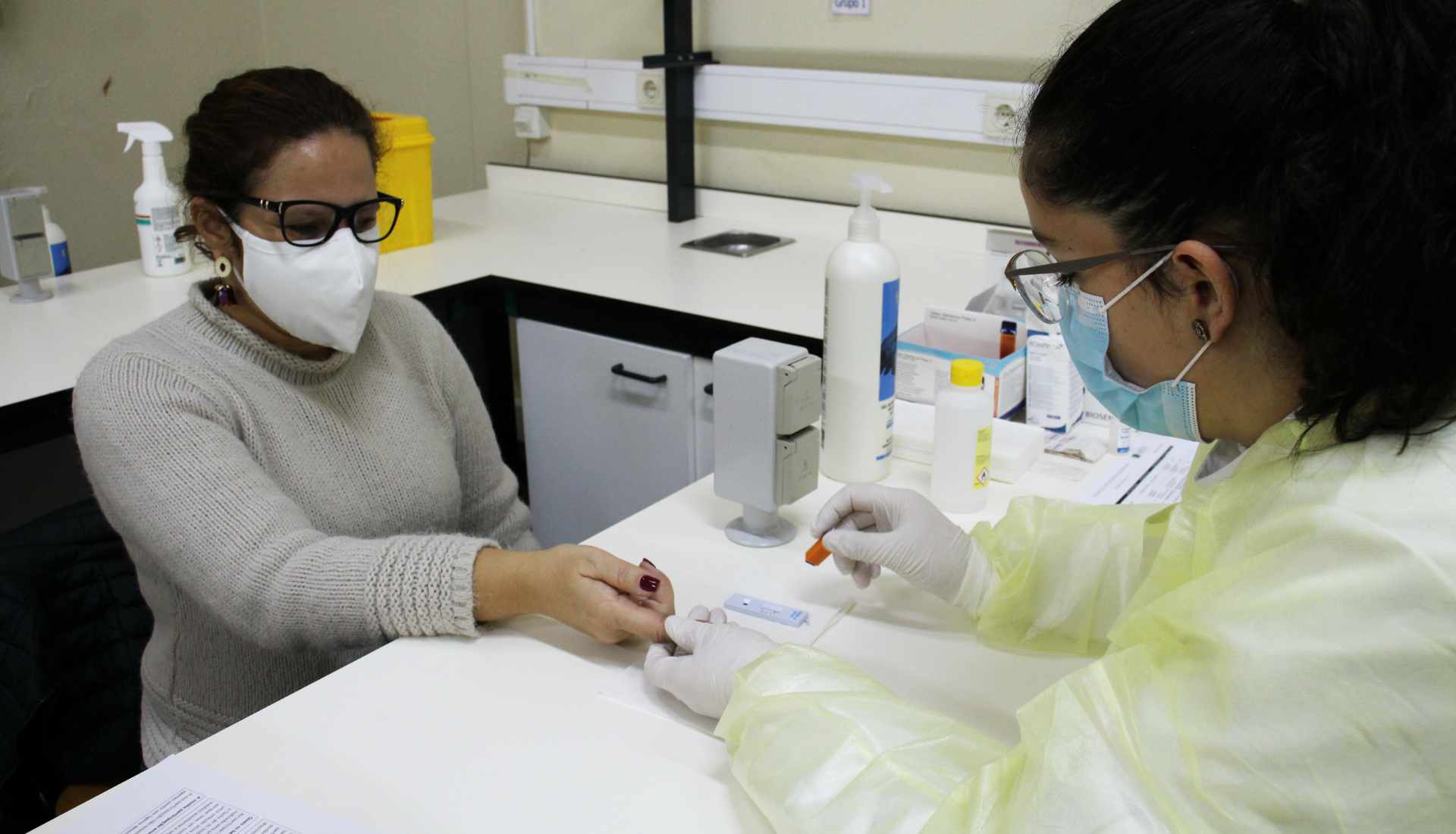The first results of the Improving MAternal Newborn CarE in the EURO Region project- IMAGINE EURO, in which the Instituto de Saúde Pública da Universidade do Porto (ISPUP) participates, were published in the renowned scientific journal The Lancet Regional Health– Europe.
The article developed in the framework of this European project, which sought to collect data about the preparation, quality and resilience of the maternal and newborn health services in countries of the European Region of the World Health Organization (WHO), during the COVID-19 pandemic, showed, for example, that between march 2020 and 2021, the percentage of Portuguese women with spontaneous vaginal births subjected to episiotomies – a procedure not recommended by the WHO – was double the percentage of the European countries included in the study, and that fundal pressure (another discouraged practice) was performed in 49% of Portuguese women who underwent instrumental vaginal births.
The research also revealed that more than 40% of the Portuguese women experienced difficulties in accessing routine antenatal care and that more than a third considered that there was inadequate communication by healthcare professionals about the possible risks of COVID-19 during pregnancy.
Quality assurance in maternal and newborn care is fundamental from a public health perspective. The redction in the quality of the assistance provided by health care services can have implications for the mental and physical health of women and newborns.
The pandemic presented increased challenges to health systems globally, including a greater difficulty in ensuring the quality of maternal and newborn care.
With this research, “the aim was to draw a European picture of the level of care provided to mothers during this period”, explains Raquel Costa, researcher at ISPUP, responsible for the coordination of the project IMAGINE EURO in Portugal, and coordinator of the Perinatal and Pediatric Mental Health laboratory, of the Laboratory for Integrative and Translational Research in Population Health (ITR), coordinated by ISPUP.
“This work was also carried out to understand the level of preparation that these services have to meet the specific needs of COVID-19”, she adds.
To achieve this goal, the researchers elaborated an online questionnaire in more than 20 languages and addressed to women who have given birth after March 2020. This questionnaire is still available for all women who wish to collaborate in the study.
The aim was to assess mothers’ perceptions of the quality of maternal and newborn care in four different parameters: the care provided, each woman’s experience of the care received, the availability of physical and human resources in hospital services, and the capacity of reorganisation of the services through the COVID-19 pandemic.
The survey was drawn up on the basis of a list of Norms, prepared by the WHO, in 2016, to help improve the quality of hospital care provided to the mothers and newborns.
The responses of a total of 21 027 women in several European countries were evaluated, 1 685 of whom were Portuguese women, who represented the fifth largest sample in the study.
The questionnaires were conducted by dividing the women into two groups: those who underwent labour (18 063) and those who did not experience labour (2 964).
“Women who go through labour experience a set of practices that those who do not experience it don’t, therefore, the questionnaire had to be adapted in the light of these differences”, clarifies Raquel Costa.
The results were then compared between the different countries participating in the study.
Regarding the most significant indicators for assessing the quality of maternal and newborn care in women who underwent labour, 31% of the Portuguese women interviewed revealed having had an instrumental vaginal birth, that is to say, a birth in which forceps or vacuum cups were used to facilitate the expulsion of the fetus, in comparison with the European average of 11%.
The percentage of episiotomies, incisions made in the perineum to widen the birth canal, performed in spontaneous vaginal births (vaginal births without the use of instruments) stood at 41% in Portugal, contrasting with an average among participating countries of 20%. This practice is currently not recommended by the WHO.
Fundal pressure, another practice not recommended by the WHO, which consists of applying external pressure to the uterus, was performed in 41% of women with instrumental vaginal births in the countries under study, a percentage that rises to 49% in Portugal.
As for skin-to-skin contact, a procedure performed immediately after childbirth, where the newborn is placed on the mother’s bare chest, which brings benefits for the baby in terms of preventing hypothermia and promoting breastfeeding (being an important practice recommended by the WHO), it was not performed in 9% of the women who went through labour in the European countries under the study, during the pandemic, with this percentage rising to 17% in the Portuguese case.
In Portugal, one in four women (26%) considered that they had received inadequate breastfeeding support by health services, and 22% were not exclusively breastfeeding at the time of their hospital discharge.
Of the Portuguese women who gave birth by caesarean section, 32% had to have an emergency caesarean section before labour, in line with the European percentage.
Skin-to-skin contact was not performed in 35% of the European women who had a delivery by caesarean section, falling to 30% in the case of Portuguese women. With regard to breastfeeding support, at a European level, 37% of the women with a delivery by caesarean section considered the support inadequate, whereas nationally, the number fell to 26%.
Concerning the experience of care received during childbirth, 43% of the women with a spontaneous vaginal birth at a European level revealed not having had a choice of delivery position, number that rises to 65% in Portugal.
63% of Portuguese women indicated they had not been asked for consent for the realisation of the instrumental vaginal birth, a percentage which contrasts with an average of 54% considering all participating countries.
In Portugal, 28% of women revealed that there was ineffective communication from health professionals and 41% said they had no involvement in choices during childbirth. 32% reported not having been treated with dignity, and 39% not having received emotional support. 23% of women reported even being physically, verbally or emotionally abused during childbirth by health professionals.
In the case of women who did not experienced labour, 37% considered that they had no involvement in choices, 26% not having been treated with dignity, 30% not having had emotional support, and 17% having suffered physical, verbal or emotional abuse.
Concerning the availability of physical and human resources, 29% of Portuguese women who experienced labour indicated not having received information about possible maternal danger signs during delivery, and 45% reported not having received this information regarding newborns.
Regarding visiting hours by partners, at a European level, 62% found the visiting hours inadequate, this figure rising to 67% in Portugal. Of the Portuguese women who gave birth by caesarean section, 56% considered visiting hours inadequate.
The impacts of the COVID-19 pandemic were felt, mainly, in the decrease in routine consultations throughout pregnancy and the scarcity of maternal and newborn care during the pandemic period.
The researchers involved in the project highlight the importance of this study at both European and national level, due to the scarcity of information about the quality of maternal and newborn care.
One of the limitations of the study may be that the overall sample of women who participated in the research had a higher level of education when compared to the general population, and were consequently more prepared to express their perspective on the care provided to them in a more critical way. This limitation may be due to the fact that the questionnaire applied in all of the assessed countries took place online, due to the pandemic.
Thus, to obtain a broader, more complete picture of the current standart of maternity and child care provided during COVID-19, a questionnaire for health professionals, whose vision is fundamental in understanding this issue, is currently available.
With the IMAGINE EURO project, the aim was to help identify gaps and plan a coordinated response across countries to improve the quality of care for mothers and newborns. This way, the results presented will also be disseminated to health authorities so they can take informed action to achieve the WHO vision: “all pregnant women and newborns should receive quality care during pregnancy, childbirth and the postpartum period.”
In Portugal, studies conducted with the aim of assessing maternal and child care are extremely scarce, leading to the issuance of a Resolution by the Assembly of the Republic, in 2021, expressing the need to evaluate the care provided in maternal and newborn health, specifically with the indication of ascertaining the prevalence of obstetric violence practices in the country.
The international project IMAGINE EURO is coordinated by the WHO Collaborating Centre for Maternal and Child Care of Trieste (Italy), under the responsibility of Marzia Lazzerini, having been financed by this centre.
The study, entitled Quality of facility-based maternal and newborn care around the time of childbirth during the COVID-19 pandemic: online survey investigating maternal perspectives in 12 countries of the WHO European Region, counted on the participation of researchers coming from Germany, Croatia, Slovenia, Spain, France, Italy, Luxemburg, Norway, Romania, Serbia and Sweden.
The image of the IMAGINE EURO project was selected for the cover of the February edition of The Lancet magazine.
In Portugal, beyond ISPUP, the Algarve ARS, the Universidade Europeia and the Associação Portuguesa pelos Direitos da Mulher na Gravidez e no Parto are also partners of the IMAGINE EURO project.
Image: Unsplash/Sen



